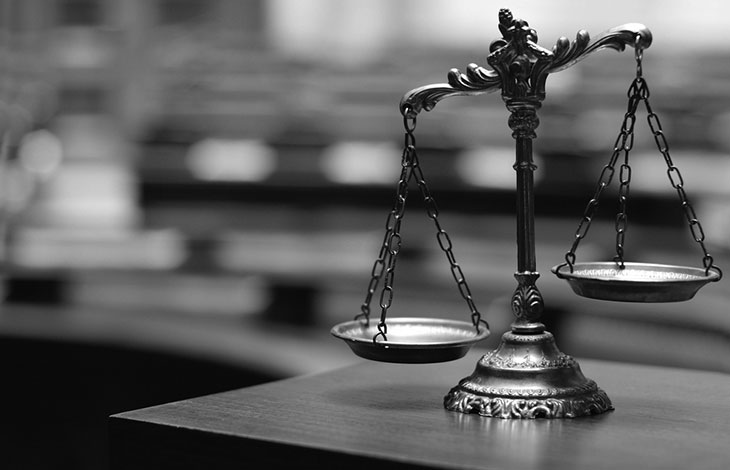
Applicable Statutes of Limitations
In New York, the statute of limitations applicable to a legal malpractice cause of action is three years, regardless of whether the underlying theory is based in contract or tort. CPLR §214(6); see Tsafatinos v. Lee David Auerbach, P.C., 80 A.D.3d 749, 750, 915 N.Y.S.2d 500 (2d Dep’t 2011). The cause of action accrues on the date the malpractice is committed, not when it is discovered. See Town of Wallkill v. Rosenstein, 40 A.D.3d 972, 973, 837 N.Y.S.2d 212, 214 (2d Dep’t 2007). Pursuant to the “Continuous Representation Doctrine”, the statute of limitations is tolled until the conclusion of the attorney’s representation pertaining to the specific subject matter underlying the malpractice claim. See Shumsky v. Eisenstein, 96 N.Y.2d 164, 168, 750 N.E.2d 67, 70–71 (2001).
The statute of limitations for an attorney to pursue a cause of action for unpaid legal fees in New York is six years. CPLR §213(2); see also Stewart v. Stuart, 262 A.D.2d 396, 396–97, 690 N.Y.S.2d 745, 746 (2d Dep’t 1999). The extended (six year) period is because a cause of action for unpaid legal fees is based on an alleged breach of contract (i.e. the Fee Agreement between the attorney and former client). See Lord Day & Lord, Barrett, Smith v. Broadwall Mgmt., Inc., 187 Misc. 2d 518, 520, 723 N.Y.S.2d 629, 631 (Sup. Ct. N.Y. County 2001), aff’d, 301 A.D.2d 362, 753 N.Y.S.2d 68 (1st Dep’t 2003).
As discussed below, the three year difference in the respective statutes of limitations can be strategically used to protect an attorney against a legal malpractice counterclaim when opting to pursue a claim for unpaid attorney’s fees.
Fee Claim Procedure
When an attorney decides to pursue a fee claim against a current or former client, there are two primary procedural mechanisms by which to do so, i.e. commencing an arbitration or lawsuit.[2]
Pursuant to New York’s Uniform Rules, there are instances when a fee claim is subject to mandatory arbitration. Specifically, fee claims that arise from an attorney-client relationship are subject to mandatory arbitration when the amount contested is from $1,000 to $50,000 (parties may consent to arbitration for amounts outside this range). There are various notice requirements, including providing the client with a Notice of Client’s Right to Arbitrate and Request for Arbitration Form. N.Y. Comp. Codes R. & Regs. tit. 22, §137.6. These notice requirements are strictly enforced – an attorney risks dismissal of the fee claim if such requirements are not followed. See Herrick v. Lyon, 7 A.D.3d 571, 572, 777 N.Y.S.2d 141, 142 (2d Dep’t 2004). If an arbitrator renders a decision on a fee claim, the aggrieved party may commence an action in a court of competent jurisdiction to have a judgement entered and collect on same. See N.Y. Comp. Codes R. & Regs. tit. 22, §137.8.
Unfortunately, resolving a fee claim through mandatory arbitration does not preclude a legal malpractice claim. Generally, when an attorney is successful on a fee claim in court it precludes a finding of legal malpractice regarding the associated representation. See Kinberg v. Garr, 28 A.D.3d 245, 246, 811 N.Y.S.2d 568, 568 (1st Dep’t 2006). However, mandatory arbitration does not apply to claims involving legal questions, including professional malpractice. N.Y. Comp. Codes R. & Regs. tit. 22, §137.1(b)(3); see Cohen v. Hack, 118 A.D.3d 460, 461, 986 N.Y.S.2d 482, 483 (1st Dep’t 2014). Thus, an arbitrator’s decision has no collateral estoppel or res judicata effect on an ensuing legal malpractice claim. See Soni v. Pryor, 102 A.D.3d 856, 857, 958 N.Y.S.2d 721, 722 (2d Dep’t 2013).
In the event the client does not timely file the Request for Arbitration Form, the attorney may commence an action in a court of competent jurisdiction and the client can no longer request arbitration. N.Y. Comp. Codes R. & Regs. tit. 22, §137.6(b). Note however that, once two years have elapsed from the last date of legal services, an attorney may commence a lawsuit for fees. N.Y. Comp. Codes R. & Regs. tit. 22, §137.1(b)(6); see Susan D. Settenbrino, P.C. v. Barroga-Hayes, 89 A.D.3d 1094, 1096, 933 N.Y.S.2d 409, 411 (2d Dep’t 2011).
Protecting Against Legal Malpractice Counterclaims
An attorney should apply the relevant statutes of limitations and fee claim procedure to try and avoid triggering a former client to file a legal malpractice counterclaim. In sum, it is recommended that an attorney wait three years from the completion of the attorney-client relationship before filing a fee claim. This will ensure that the statute of limitations on the client’s legal malpractice claim has run, and also allow the attorney to avoid mandatory arbitration and its associated risks.[3] While an attorney cannot preclude a former client from asserting a legal malpractice counterclaim, proceeding in this fashion will provide the attorney with a procedural defense which will defeat the counterclaim promptly, likely on a motion to dismiss.
Disclaimer: This is intended to educate generally on certain issues and is not intended to provide legal or professional advice. The information and opinions expressed in this document are solely those of the author and do not necessarily represent the view or opinions of any current or former clients of Segal McCambridge Singer & Mahoney, Ltd.
[1] Obviously, avoiding a fee claim altogether is preferred. Various strategies can be employed to achieve this goal, including: (1) vetting the client prior to retention regarding its willingness and ability to timely pay legal fees; (2) establishing a clearly defined written fee structure with the client; (3) providing the client with an anticipated budget at the outset of the representation and updating that budget as the representation proceeds; (4) timely apprising the client of the case status and need for ongoing work; (5) issuing invoices to the client on a regular basis; and (6) obtaining a retainer.
[2] While not addressed at length herein, there are several reasons an attorney may choose to abstain from commencing a fee claim, including: (1) avoiding the inherent risks and legal fees associated with a legal malpractice counterclaim; (2) the impact a legal malpractice counterclaim may have on malpractice insurance; and (3) the implications a legal malpractice counterclaim (even if unfounded) may have for future business.
[3] The client may still use the alleged malpractice as an affirmative defense to offset the attorney’s recovery.


